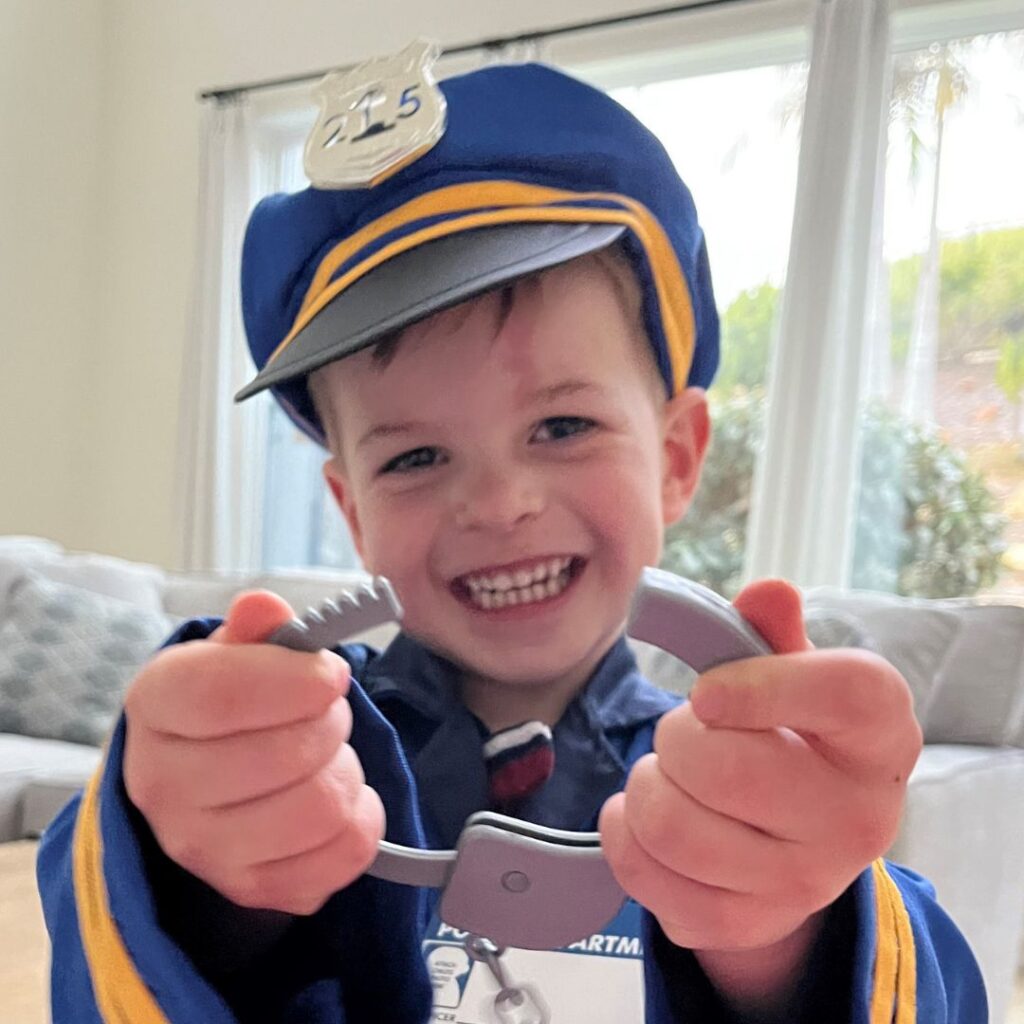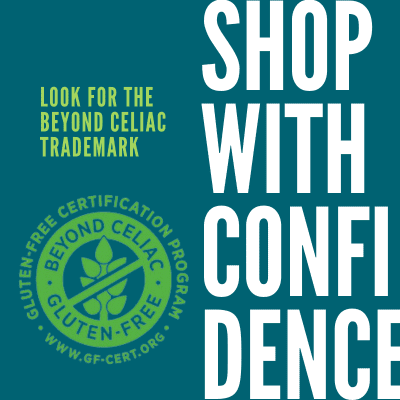As Oliver is still a minor, his story is told by his mother, Ashley
Describe your child’s life prior to diagnosis.
Prior to diagnosis, Oliver was a happy toddler who ate most everything we served him. Around two and a half years old, he progressively became a picky eater (which can be totally normal for kids this age).
How did you find out that your child has celiac disease? Did you suspect it beforehand?
At around three years old, Oliver started refusing to eat off and on, was extremely low energy, and had a distended belly. My husband had taken him to visit relatives, and I kept getting phone calls saying, “He really isn’t eating anything. I don’t know what to do!”
The following week, we surprised him by taking him to the air show at a local military base (something he would typically LOVE), and he couldn’t physically get out of his stroller to explore—he was just too lethargic. We looked at each other and agreed something was wrong.
Our pediatrician suggested that kids his age often have changes in appetite and that wasn’t concerning, but the lack of energy certainly was. She ran full labs, including a celiac panel and within a week, we were told he likely had celiac disease because his levels were off the chart.
How long did it take for your child to get diagnosed since their first symptoms and what (if any) challenges did you face along the way?
Our pediatrician is amazing. After we received the blood results, he personally called the lead gastroenterologist at our local children’s hospital to expedite seeing us. We were in with the gastroenterologist within a week or so and then had an endoscopy about a month after. The images immediately indicated quite a bit of damage to the small intestine, and he was officially diagnosed after the biopsy results came back positive.
Do you believe anything could have sped up your child’s diagnosis? If so, please explain:
I don’t. We were so lucky to have:
- Trusted our gut instinct. The week leading up to our original doctor appointment, my husband and I kept going back and forth. “Maybe it’s behavioral?” “He ate a bit more at dinner last night. Maybe it’s just a phase?”
- A pediatrician who took our concerns seriously.
Describe your experience living with celiac disease:
Oliver’s celiac disease has been easy to manage at home—we have committed to being a nearly completely gluten-free home (though do still have sandwich bread for non-celiac members), and we have successfully found ways to create all of our favorite meals gluten-free.
The challenges have been outside our home. We can’t eat out on a whim and have to stick to “safe” places, which are so limited, even in southern California! We have to bring separate food and snacks to parties and share a lot of education with friends. Luckily, our families have been so supportive and have been committed to gluten-free gatherings, which allows us all to have a good time, stress-free.
Our biggest challenge right now is actually continuing to understand Oliver’s reactions to gluten. His six-month-post-diagnosis bloodwork came back looking great with significantly reduced TTG, but still well outside normal range. We don’t know if he is still healing (likely) or if he is accidentally being exposed to gluten. We have yet to see a gastrointestinal reaction, but he’s recently had some skin problems pop up (what looks like nummular eczema), so we don’t know if that is a result of gluten exposure. We are still managing nutrient deficiencies and trying to get enough nutrients into a small child, who is still quite a picky eater (though this has improved a ton with his new diet).
We are just at the beginning of this journey and are left with a lot of uncertainty and unknowns, but hope that we will figure it all out with time.
What would a cure mean for you and your child?
A cure would mean freedom—freedom for Oliver to feel his best without the mental load that a gluten-free life brings. Freedom to eat what he wants, where he wants. And financial freedom; even with insurance, the ongoing medical support required is expensive!




